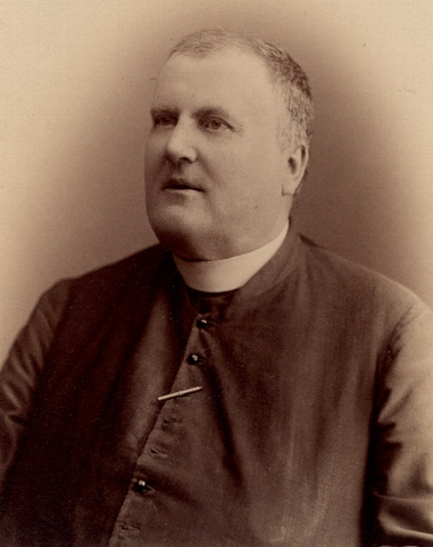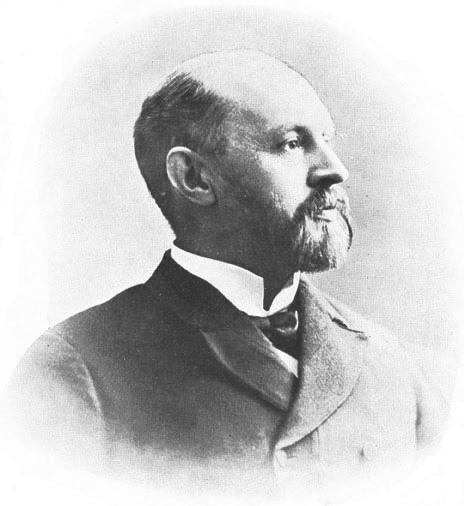The fate of francophones outside of Quebec has recently attracted renewed public scrutiny. In September, New Brunswick’s People’s Alliance, a party hostile to official bilingualism, made a political breakthrough and secured a position of influence by supporting the Progressive Conservative government. The following month, columnist Denise Bombardier argued that the French language had largely disappeared outside of Quebec. At last, more recently, Ontario Premier Doug Ford announced the abolition of both the Université de l’Ontario français and a government commission on the provision of French services. Each of these measures enabled such conservative nationalists as Mathieu Bock-Côté to renew their case for the distinctiveness of Quebec, whose culture, they claim, might only be secured through independence.
This is hardly a new issue. The increasing emigration of French Canadians from Quebec in the second half of the nineteenth century anticipated the current debate. In fact, as early as the 1840s, elites in Lower Canada (later the Province of Quebec) expressed dismay at the ever-growing movement of people to the United States. Political and religious leaders feared that this great demographic hemorrhage would undercut French Canadians’ influence and ability to protect themselves within the British dominions. They expressed doubts as to the survival of French Catholic culture beyond the St. Lawrence River valley—in the hostile environment of English Protestant materialism, as they saw it.

Some scholars insist that this intransigent opposition to emigration declined around 1880: emigrants were putting down roots outside of the province, forming permanent communities with their own cultural institutions, and proving that French Catholic culture could indeed survive beyond Quebec. These scholars draw attention to public figures who now argued that emigrants were serving a quasi-providential mission. Perhaps the expatriates would serve as missionaries and seedlings of a broader North American francophonie. Providentialist thinkers argued that God had willed expansion that would recreate New France, to the glory of the Roman Catholic Church.
Unquestionably, some political and religious leaders did embrace this view. In Le Canada-Français et la Providence, Philippe Masson wrote,
Our opportunity to spread religious truth is better than any other race’s. We constitute a people whose members are as a single body, on a common territory; who, honored and glorified by a shared past, speak the same language and have a common destiny. The Province of Quebec is truly a new France, a granddaughter of the Church, governed by her mother’s laws, with institutions of its own and speaking a particular language that bestows a distinct national character.
From this basis, it was little of a stretch to argue that a healthy birth rate would enable French Canadians to expand across political boundaries and fulfill their divine mission.
But the prevalence of this view—whose outlook on Franco-American communities was positive and supportive—is easily exaggerated. Present-day scholars who emphasize this providentialism rely on a small set of recurring characters, among them Louis DeGoesbriand, the bishop of Burlington, Vermont; Franco-American orator Charles Thibault; Quebec premiers Joseph-Adolphe Chapleau and Honoré Mercier; Father Edouard Hamon; and writer Edmond de Nevers.
These were hardly representative figures. There is, moreover, little indication that they were able to mold public opinion. In his Franco-Americans of New England, historian Yves Roby explained what was really necessary for elites to embrace emigration and providentialism:
Quebecers had to accept the fact that those who had left would not return, indeed, that they would fight tooth and nail against any attempt to repatriate them; next, they would have to realize that emigrants remained true to themselves in the midst of a foreign people, that they had no desire to become Americanized and, finally, that it was vital to help them.
As I show in my article in The Historian, none of this happened in any meaningful way, at least within the political class. Successive provincial governments committed to impracticable schemes meant to foster repatriation and the colonization of Quebec’s outlying areas. The fame of curé Antoine Labelle as a proponent of domestic colonization in the 1880s gives a very real sense of how elites viewed those who migrated south rather than north.

It was conservative nationalist Jules-Paul Tardivel who expressed the more common position. In 1886, in his newspaper, La Vérité, he declared,
the general interest requires that we concentrate our strength in the Province of Quebec, that French Canadians become a united and strong people in this land which cannot be taken from us, that we continue developing under the auspices of the Church and of institutions inherited from our ancestors. That is our true destiny, that is the goal towards which we must strive if we are to one day fulfill with dignity the glorious mission that divine Providence seems to have assigned us in America, a mission analogous to the one long accomplished in Europe by France.
In short, the identification of Quebec as the true and exclusive homeland of French Canadians was not a product of the neo-nationalism of the Duplessis Era and Quiet Revolution. Nor did a vision of the Quebec government as an agent of national fulfillment and development suddenly emerge from that era, as the prior century’s colonization schemes reveal. Already, by the end of the nineteenth century, elites in La Belle Province saw emigrants as inevitably condemned to speedy assimilation. By doing so little to support the “exiles,” elites did as much to fulfill their prophecy as would the overwhelming mass of English speakers.[1]
As I conclude in my article,
Until now, few scholars have seen late-nineteenth-century emigration as an important factor in the transition from French-Canadian nationalism to a more familiar Quebec nationalism. As elites approached proposals for repatriation and colonization and witnessed the trials of French-Canadian culture abroad, emigration led to a new sense of self in the province. Church and nation remained connected, but both were now securely latched to the predominantly French-Canadian state revived by Confederation. Even though large-scale repatriation failed and colonization had mixed outcomes, the Tardivellian viewpoint prevailed. Emigrants’ stubborn refusal to repatriate, and their growing acculturation abroad, seemed to annul the moral commitment formulated by Mercier. In any event, facing reversals elsewhere, French Canadians would better resist the siege in a province where Catholic parishes, constitutional guarantees, and a clear cultural majority could ensure the survival of their distinct identity. The French-Canadian nation thus fragmented geographically: a broad “racial” identifier was abandoned in favor of a territorial outlook, such that Franco-Americans, Franco-Ontarians, and other diasporic groups were now presumed to have destinies separate from that of francophones in Quebec.
You can read more on this subject in “Parish and Nation: Geographical Conceptions of Providential Destiny among French Canadians, 1880-1898,” The Historian, vol. 80, no. 4, accessible here. See also, on Canadian francophonies, this op-ed in Le Droit from 2017 and my recent review essay of works on the subject for Histoire sociale/Social History.
[1] Laurent Poliquin’s latest work also challenges conventional views of French-Canadian life outside of Quebec.
Leave a Reply